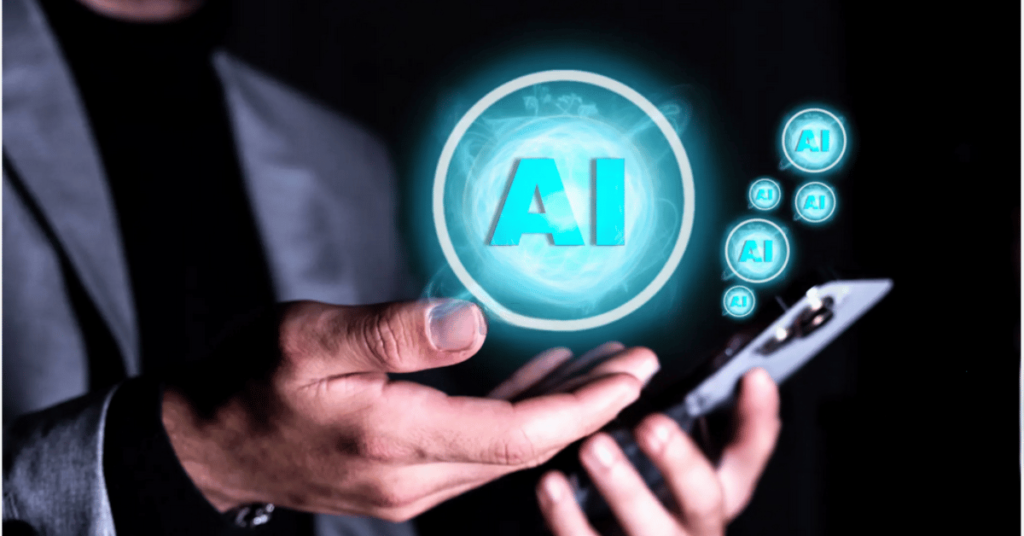Why Artificial Intelligence Is a Game Changer in Software Development
Artificial intelligence in software development is revolutionizing how applications are created, tested, and deployed. This game-changing technology influences every aspect of the development process, from code generation to bug detection and optimization. As AI in software development advances, it’s reshaping the roles of developers and how software projects are managed.
In this article, you’ll explore the rise of AI in software development and its transformative influence on development processes. You’ll learn about the benefits and challenges of integrating AI-based tools into your tech stack, and how generative AI is transforming the game for developers. We’ll also discuss the considerations you must consider when adopting artificial intelligence in software development, ensuring you’re well-prepared to navigate this exciting new frontier in the industry.

The Rise of AI in Software Development
Artificial intelligence has become a game-changer in the rapidly evolving field of software development. While the concept of AI has been around for decades, it’s only recently that AI in software development has captured the collective attention of businesses and society. AI’s ability to perform tasks typically requiring human cognition has revolutionized how you create, test, and deploy software.
Understanding Generative AI
Generative AI, a subset of artificial intelligence, has the power to transform traditional business workflows. It enables you to leverage high computational power and extensive datasets to innovate and develop new concepts, products, and services. One notable example is GPT-3 (Generative Pre-trained Transformer), introduced in May 2020. This revolutionary tool is used for automated conversations, responding to text inputs with contextually appropriate outputs. Generative AI in software development is a key driver of innovation today.
Key Milestones in AI Development
The journey of artificial intelligence in software development has been marked by significant milestones:
- 1950s: Introduction of neural networks and the coining of terms “artificial intelligence” and “machine learning” .
- 1960s: Development of Eliza, the first chatbot with cognitive capabilities, and Shakey, the first mobile intelligent robot .
- 1970s-1980s: AI winter followed by an AI renaissance .
- 1990s: Advancements in speech and video processing .
- 2000s: Introduction of IBM Watson, personal assistants, facial recognition, and autonomous vehicles .
- 2020: Release of GPT-3, consisting of 175 billion parameters to generate human-like text models .
- 2022: Introduction of ChatGPT, providing a chat-based interface to GPT-3.5 .
- 2023: Announcement of GPT-4, a multimodal large language model capable of processing both text and image prompts .

Factors Contributing to AI Growth
Several factors contribute to the rise of AI in software development:
- Increased computing power and storage capabilities: Cloud infrastructure has provided massive computing power for processing and data storage, enabling the AI wave.
- Advancements in algorithms: New algorithms have allowed programmers to grow AI applications exponentially.
- Access to large datasets: Cloud-based storage gives companies easy access to huge amounts of structured and unstructured data, providing significant opportunities for AI-powered data analysis.
- Competitive advantage: Companies are constantly seeking new technologies to gain an edge over their competitors. AI technologies enhance product development, optimize operations, and enable strategic, data-driven decisions.
- Improved customer experiences: AI allows companies to analyze data to gain insight into customer preferences, needs, and behaviors, leading to more personalized experiences and increased loyalty.

Transformative Impact on Development Processes
AI is revolutionizing software development processes, enhancing efficiency and transforming how you create, test, and deploy applications.
Code Generation and Completion
AI-powered coding tools are changing the game for developers. These tools can generate full or partial lines of code, accelerating the development process and boosting productivity. For instance, GitHub Copilot, favored by 55% of developers, provides contextualized coding assistance across numerous programming languages.
You can use AI to generate code in three ways
- Autocomplete code as you type
- Chat directly with AI for coding assistance
- Generate full or partial code snippets
These AI coding assistants act as extra team members, reducing your workload and allowing you to focus on solving complex problems. They analyze large code datasets to produce code with fewer potential errors, following best practices for security, efficiency, and design patterns.

Challenges and Considerations
Quality Control and Bias
As AI becomes more prevalent in software development, you need to be aware of potential biases that can compromise the integrity of your projects. AI bias can lead to skewed results and undermine the accuracy of software testing. To tackle this issue, it’s crucial to detect and mitigate bias at every stage of the AI lifecycle.
To prevent AI bias from affecting your software:
- Use specialized tools to detect bias in AI models
- Validate tests generated by AI
- Manage the review process effectively
- Implement continuous monitoring and feedback systems
These steps allow you to track AI performance, detect biased behavior, and correct course before significant issues arise.

Privacy and Security Concerns
AI processes vast amounts of data, protecting sensitive information becomes paramount. You must implement strict security protocols when using AI tools to maintain trust in the AI-driven development process.
Key considerations for privacy and security
- Ensure AI models and the data they process are secure
- Implement privacy-enhancing techniques (PETs) like de-identification or pseudonymization
- Be prepared to respond to data subject requests (DSR) for access or deletion
- Address informational privacy concerns to protect personal data collected and processed by AI systems

Need for Human Oversight
While AI enhances efficiency, human oversight remains crucial. As more code is generated through AI, the manual effort required to test and remediate security issues increases . You must retain control of the policies governing AI-code production and maintain visibility of all pipelines to ensure security flaws don’t go unnoticed.
Human intervention is essential for
- Assessing and prioritizing ethical considerations
- Providing accountability and transparency
- Identifying and rectifying errors or biases in AI operations
- Continuous learning, critical thinking, and creativity to improve AI systems
By addressing these challenges and maintaining human oversight, you can harness the power of AI in software development while mitigating potential risks.
Conclusion
The integration of AI in software development is causing a revolution in the industry, transforming how we create, test, and deploy applications. From code generation and automated testing to design assistance and prototyping, AI has a significant impact on every stage of the development process. While it brings numerous benefits, it also presents challenges related to quality control, bias, privacy, and security that need to be addressed carefully.
As artificial intelligence continues to evolve, it’s reshaping the roles of developers and the way software projects are managed. However, human oversight remains crucial to ensure ethical considerations, accountability, and continuous improvement of AI systems. By embracing AI responsibly, developers can harness its power to boost productivity, enhance creativity, and drive innovation in the software development landscape.
Frequently Asked Questions
How is artificial intelligence revolutionizing software development?
Artificial intelligence is transforming software development by enhancing the ways teams design, develop, document, deliver, and debug software. AI aids in accelerating the process of adding features, fixing bugs, and responding to support requests. It can also act as a mediator in collaborations among team members, stakeholders, and customers.
In what ways is AI considered a game changer?
AI is pivotal because it can recommend products, content, and next-best actions, guiding customers through complex journeys effectively. This capability makes it a transformative tool in various industries.
What impact does AI have on game development?
AI is significantly advancing game development by creating non-player characters (NPCs) that exhibit lifelike behaviors, emotions, and interactions. These advancements allow for more realistic decision-making and adaptive responses to player actions, enhancing storytelling and the overall immersion of game worlds.
How is artificial intelligence shaping the IT industry?
In the IT industry, AI is seen as a tool for empowerment rather than replacement. It takes over repetitive tasks, allowing IT professionals to focus on strategic planning, system design, and creative problem-solving. This collaboration with AI is enhancing the efficiency and capabilities of IT teams.
